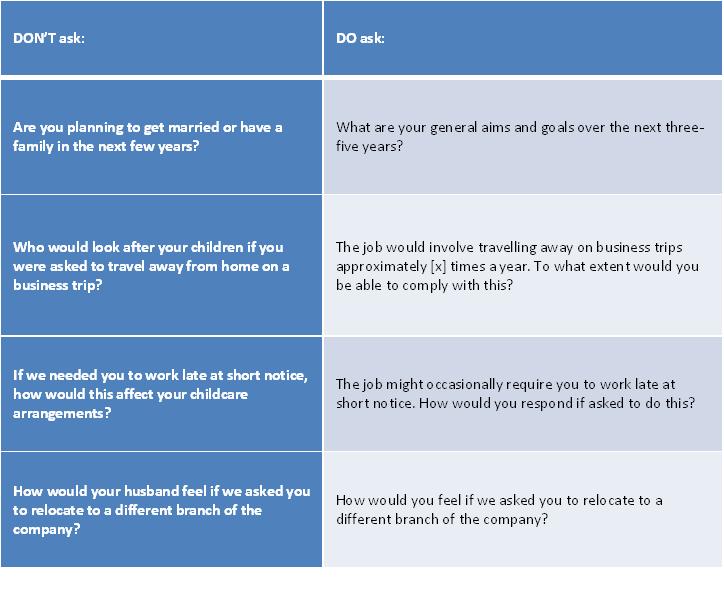Your business is growing and you’re looking to expand your team and take on a new member of staff. How hard can it be? Once you’ve advertised the position and collected all the CVs from the applicants, all you have to do is carry out a few interviews. But if you’ve never interviewed before, or you’ve had no formal training in how to do it, you need to be careful. These days there are many things that can trip you up during an interview. You can be sued by someone before they even start working for you, so this issue of Working Together looks at what you should not ask in an interview and what you can ask.
The key purpose of an interview is to assess the skills, experience and general background of a candidate, to help you make a decision on whether that person is the best person for the job you’re looking to fill. Interviewing is the most commonly used method of assessing prospective employees and it should be a two way process. An interview should be a forum through which each candidate can obtain information about your business and the job.
Here are some topics you should NOT ask about in interviews:
- Marital status or marriage plans
- Childcare arrangements
- General family commitments or domestic arrangements
- Actual or potential pregnancy or maternity leave
- Their partner’s occupation and mobility
- Any actual or potential absences from work for family reasons.
Employment tribunals take the view that these questions, if asked of a female candidate, indicate an intention to discriminate. Instead, you should ask questions that explore the ability to perform the job and they should be asked of all your candidates.
So what can you ask?
- Your questions should check facts about background, test achievement and assess aptitude and potential
- Ask specific questions on work experience, qualifications, skills, abilities, ambitions and strengths or weaknesses
- Ask open questions, “what”, “which”, “why”, “how”, “where”, “when” and “who”, rather than closed questions
- Ask questions that are challenging, but never in a way that may be intimidating
- Ask questions that require examples of real situations that the candidate has experienced
- Ask factual questions about past experience and behaviour.
Once you have gathered all the information you need, through open questioning, you should be in a good position to make a decision. Make sure your questioning covers work experience, qualifications, skills, abilities, knowledge, ambitions and strengths and weaknesses. Don’t allow gut feeling alone to determine the selection decision, because gut feelings are inevitably influenced by personal attitudes, and may result in unlawful discrimination. Focus on the requirements of the job and the extent to which each applicant’s background matches these.
I recently ran an interviewing skills workshop for one of my clients and some of their staff. If you’d like me to deliver the same thing for you, do get in touch by calling 0118 940 3032 or clicking here.

